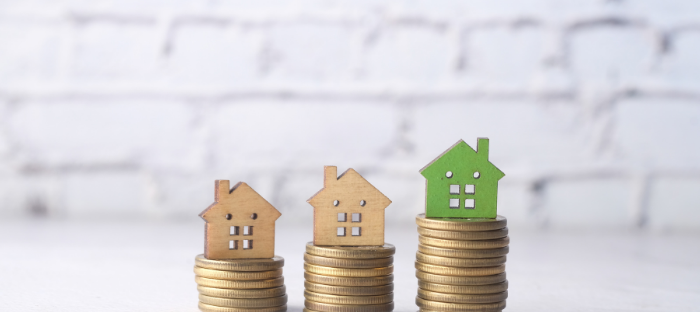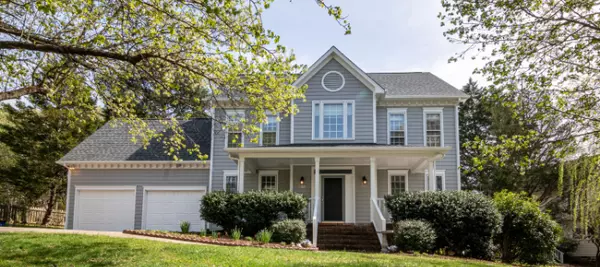The Hard Truth About Flipping Houses
The Hard Truth About Flipping Houses.

Flipping houses for a living seems attractive at a glance. You buy a house, embellish it, and sell it for a profit. You're your own boss, you get to use your hands, and you work on your own timeline.
Still, is it for everyone? House flipping can yield a huge profit but it's a risky business. The time investment and the market's situation when you decide to sell contribute to thinning profit margins if you're not used to the business so what are some key things to think about before taking the plunge?
Don't go by the average cost to flip a house.
When stepping into a money pit, it's better to have more money than you thought you would need.
The truth is that in order to make money, especially in house flipping, you need to be ready to lose money. You are essentially turning yourself into a real estate investor when you buy a property with your main intention is to turn a profit from it. There is a significant financial risk that you will be paying for a long time.
Flipping properties involves large sums of money and if you calculated an average of what it would cost to shape up a house to sell it, you need to tack on an additional 10% at the very least.
The amount you plan for, of course, depends on what kind of market you bought the house in and the condition of the home at the moment of purchase. It's still pretty easy to underestimate what the price of all the needed repairs will be.
Problems may crop up over time despite all your best efforts to properly evaluate the cost of the materials and manual labour.
What is the 70% rule?
The 70% rule states that you should not be paying over 70% of the value of a property minus the repair costs. Take the value of the home after the repairs, multiply it by 0.7 and subtract the estimated repairs from the result; that is what you should pay at most.
Is the after-repair value tied to the market value? Not always. Fluctuations in the market can drown out your profits which is why you want to give yourself a good margin with the 70% rule. The eventual resale value will depend on external factors that you cannot control so it's best to focus on what you can have an effect on.
For example, you can lower the repair cost by doing more of the work yourself, building up some "sweat equity".
What is sweat equity?
Sweat equity is the labour or work done in order to increase the value of a property. It reckons that one's own sweat is worth some portion of the property.
It's an important factor to consider when you want to get into the business of flipping houses. How much of the work are you willing and able to do on your own can have a significant impact on your profits.
Flipped or not, you still have to pay the mortgage.
House flipping is more often than not done by people one house at a time. Real estate investing can take many forms and when flipping a house there are a few different ways to go about it.
If you have enough money to buy the house outright then that's great and flipping it will almost always guarantee a profit. However, if you need a loan to purchase the home in the first place then you need to be aware of the monthly costs that you need to shoulder.
Buy low, sell high is easy for stocks but for houses bought with a mortgage, it's a little more complicated.
If you ask your local real estate agent they will tell you that most houses get sold in a few weeks if not less. The right property will fly off the market easily but until it does get sold you are still responsible for the payments to your mortgage lender.
If you can, hunt down mortgages with low-interest rates to finance the purchase of the fixer-upper and keep an eye out for mortgages that offer lower pre-payment penalties. When you eventually sell, you want to keep most of the money you invested and with a lot to go on a mortgage that can be complicated.
It can take years before you break even.

Following up on the previous point, you need to take the time this entire process takes into consideration. Real estate is a great investment but it is not liquid.
For real estate investors, a very quick profit operates on a time frame of two years at the very least.
You have to take into account the mortgage term, the number of repairs you can do to a house within that time frame, the time it takes to find potential buyers, and more.
More time spent flipping a house might not always result in more profit. You can spend the cash needed in the process by remodelling an old kitchen, adding a pool, and redoing the wiring throughout the house but see the returns on your investment drop because the neighbourhood deteriorated while you were making those changes.
The amount that you owe on the home and the details of the pre-payment penalty alone could be enough to incur a loss in the end. And both of those things only get better with time (or refinancing your mortgage).
You must have the financial resources for this type of investment or it won't work out for you.
Agent commissions, closing costs, and more are common in home sales that you have to account for.
If you intend to flip houses for a living and have that be your only source of income then you need to either have rock-solid budgeting skills or be prepared to live in the house you are going to flip.
Without a plan, to start flipping houses is the equivalent of slowly burning your savings. Getting in touch with real estate agents in your area and asking them about the potential of flipping houses is a good place to start.
If you have paid off your mortgage on the house you already live in, you could take out a home equity line of credit to finance the purchase of a fixer-upper and the repairs but you risk putting your own home in jeopardy if the purchase price of the house flip doesn't match expectations.
If it's your first time flipping a house then it's a good idea to talk to some professionals and the people for whom you're responsible. House flipping is a stressful process and the investment needed is in sweat, time, and vast amounts of money.
View All Homes For Sale in Greater Vancouver >>>
About Search Home Listings
SearchHomeListings.ca has simplified the home buying and selling process by giving you superior tools with up-to-the-minute information including active homes for sale, sold homes, market reports, and a home valuation tool! We have a team of success managers on standby to support you with setting up your saved home search and agents ready to take you out on a tour. Tap into our industry experts from inspectors, to contractors to interior designers to provide you with the best prices and service possible. Everyone attached to our website has been rigorously vetted and is made up of caring, knowledgeable professionals that work tirelessly to help you to make your home buying experience as stress-free as possible. Contact us today to see how we can help!
Sites We Follow
Categories
Recent Posts










